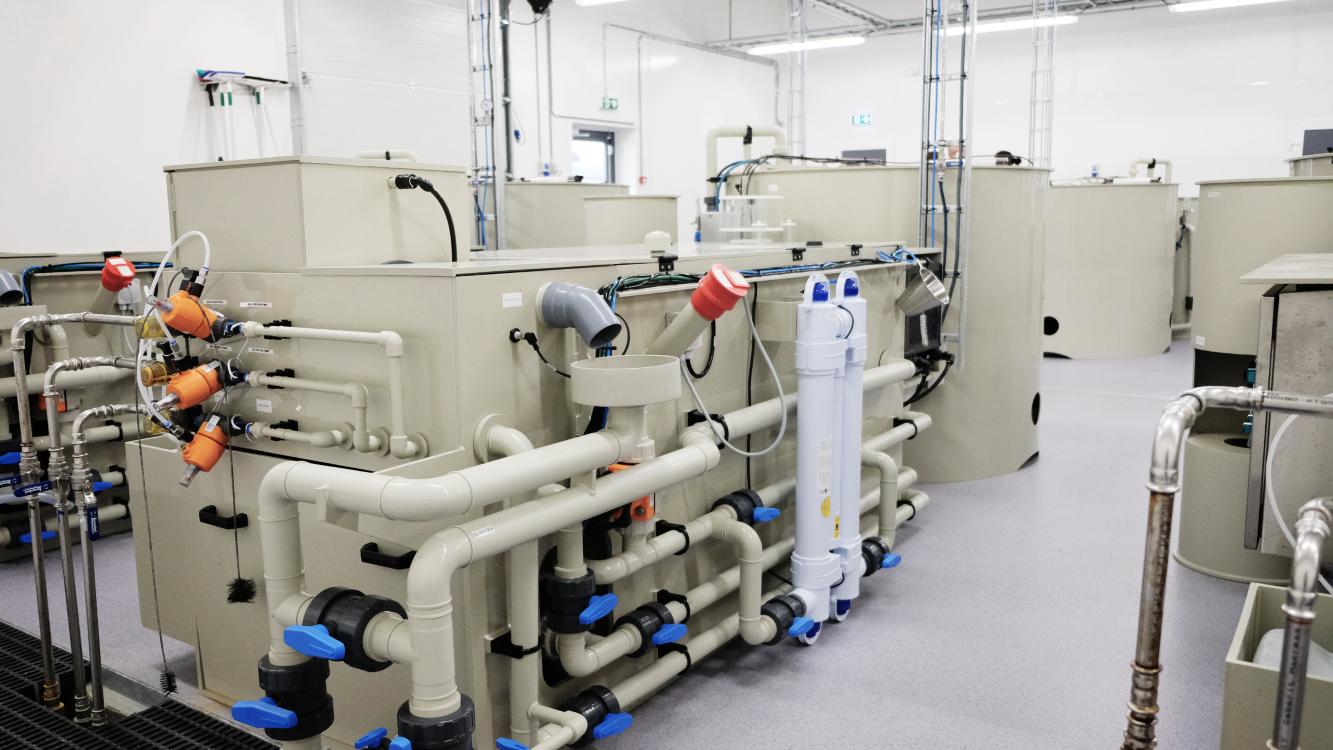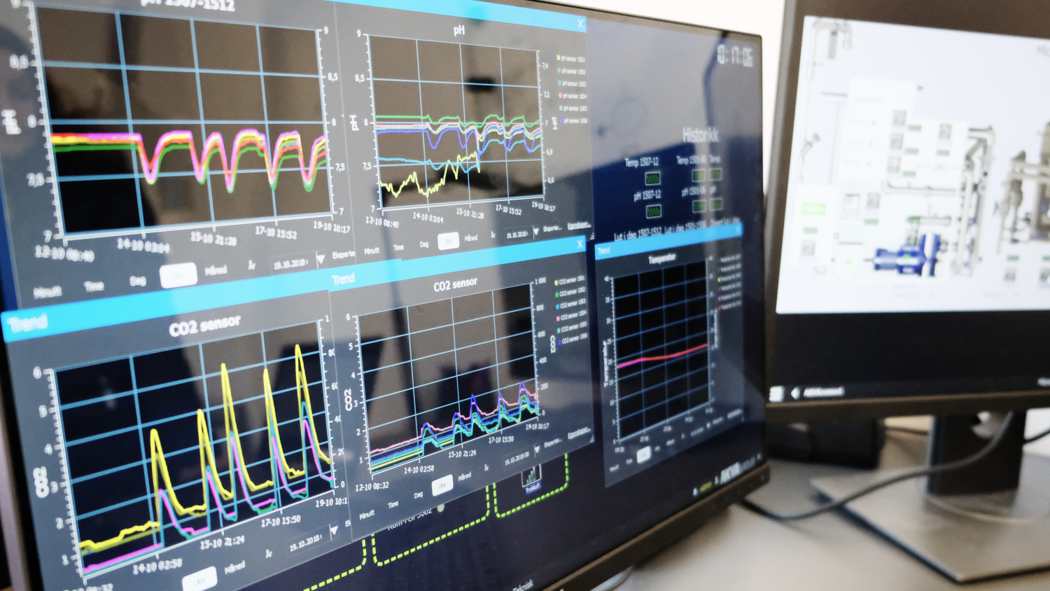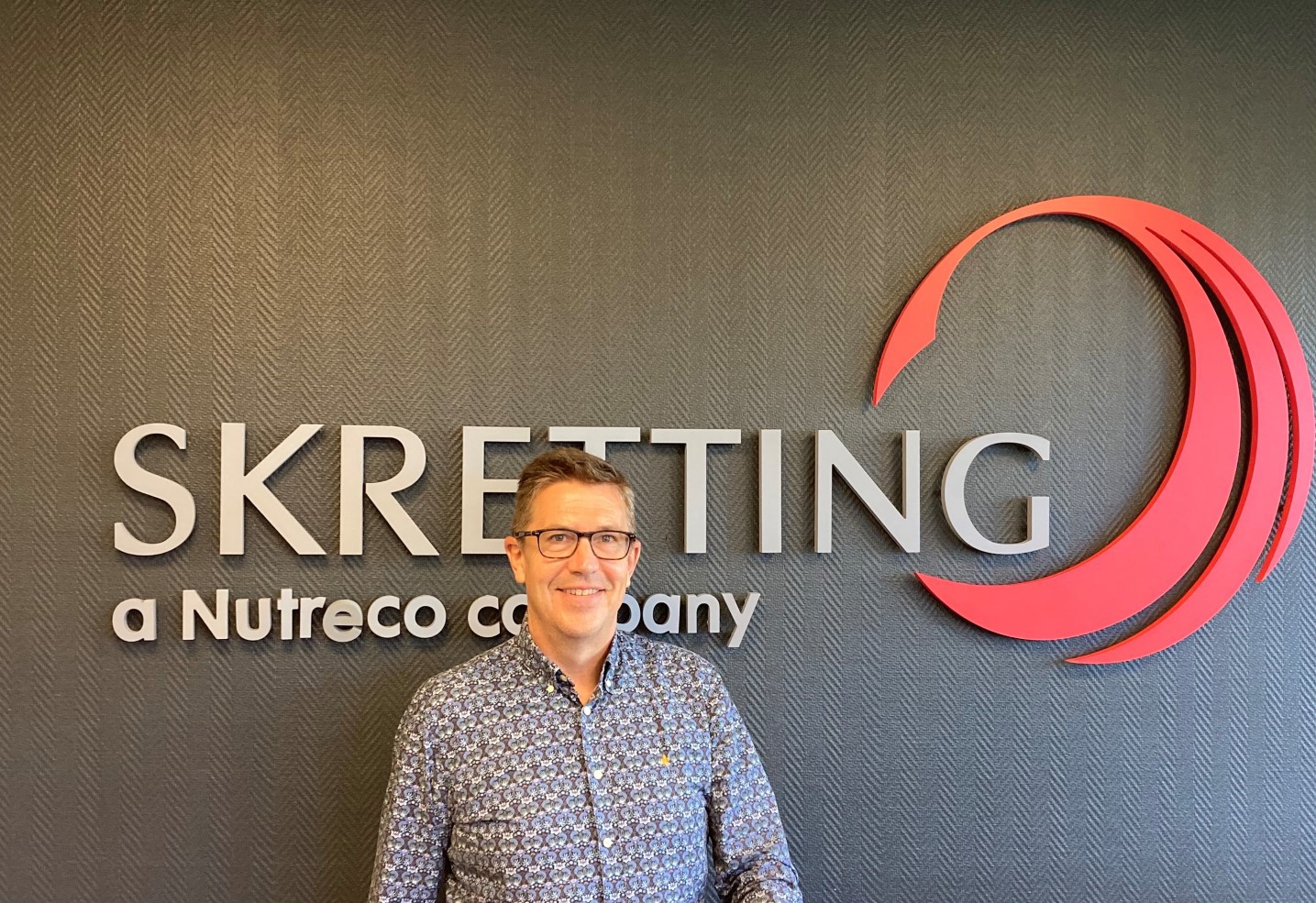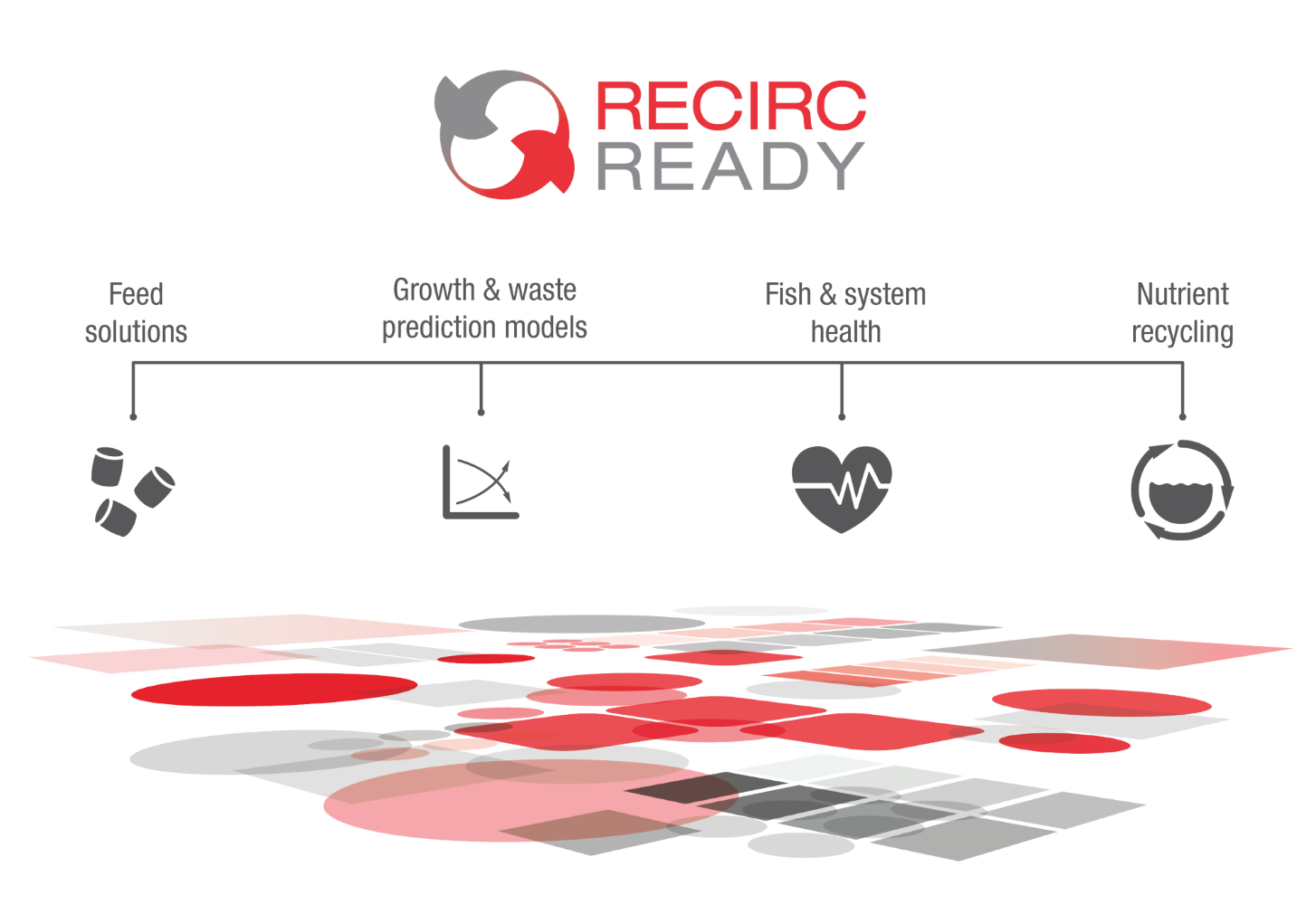To enable researchers to conduct precise experiments on its latest closed system feed formulations in strict, closely monitored environmental conditions, Skretting recently expanded its Lerang Research Station in Stavanger, Norway, to include a state-of-the-art recirculation hall.
Skretting Aquaculture Research Centre RAS facilities set to accelerate knowledge and support growth
New recirculation hall is ideally positioned to support closed containment sector’s future growth

Comprising 12 independent recirculating aquaculture systems (RAS), predominantly conducting trials for salmon product development, this new facility enables research on feed and formulations, and also evaluates feed interactions and influences on system performance.
With the recirculation hall now complete, it joins Skretting’s existing infrastructure of recirculation research units, located in Chile and Australia. Their importance is growing quickly as more innovative production facilities emerge that require customised feeds.
“Attempts to mitigate the biological risks associated with traditional aquaculture is leading to a lot of momentum for closed fish production systems, and this is happening all over the world. While these are unique systems with their own particular challenges, Skretting has been operating within this space for a long time; we brought the first recirc-specific diet to the market in 2009. The knowledge and expertise that we continue to amass along with the R&D facilities that we have in place will prove invaluable as more and more of these systems come on stream,” says Dr Paulo Mira Fernandes, Researcher and RAS expert at Skretting Aquaculture Research Centre (ARC) and International Director on the Aquaculture Engineering Society Board of Directors.
New knowledge to build on decades of experience
Producers using RAS are also benefiting from Skretting’s robust set of pioneering AquaSim management tools that predict farm performance and enable production to be further optimised. Based upon appraisals of the farming environment and each farm’s production targets, and using more than 20 years of growth and waste prediction model development, AquaSim provides recommendations on the most cost-effective stocking patterns, feed selection and feeding strategy to help producers to achieve their desired results.
“Skretting has multiple research facilities dedicated to closed containment systems. As well as developing feeds that can help optimise our customers’ production, we have built an unprecedented knowledge bank of the most effective ways to manage and apply this technology. We know that feeding the fish means feeding the system, and our knowledge in this area ensures that we can help our customers maximise their production capacity,” says Fernandes.

RAS
Skretting is the market leader for diets specifically designed for Recirculating Aquaculture Systems (RAS). RAS are land-based aquaculture facilities that reuse water by cycling it through a filtration system so it can be used again.

